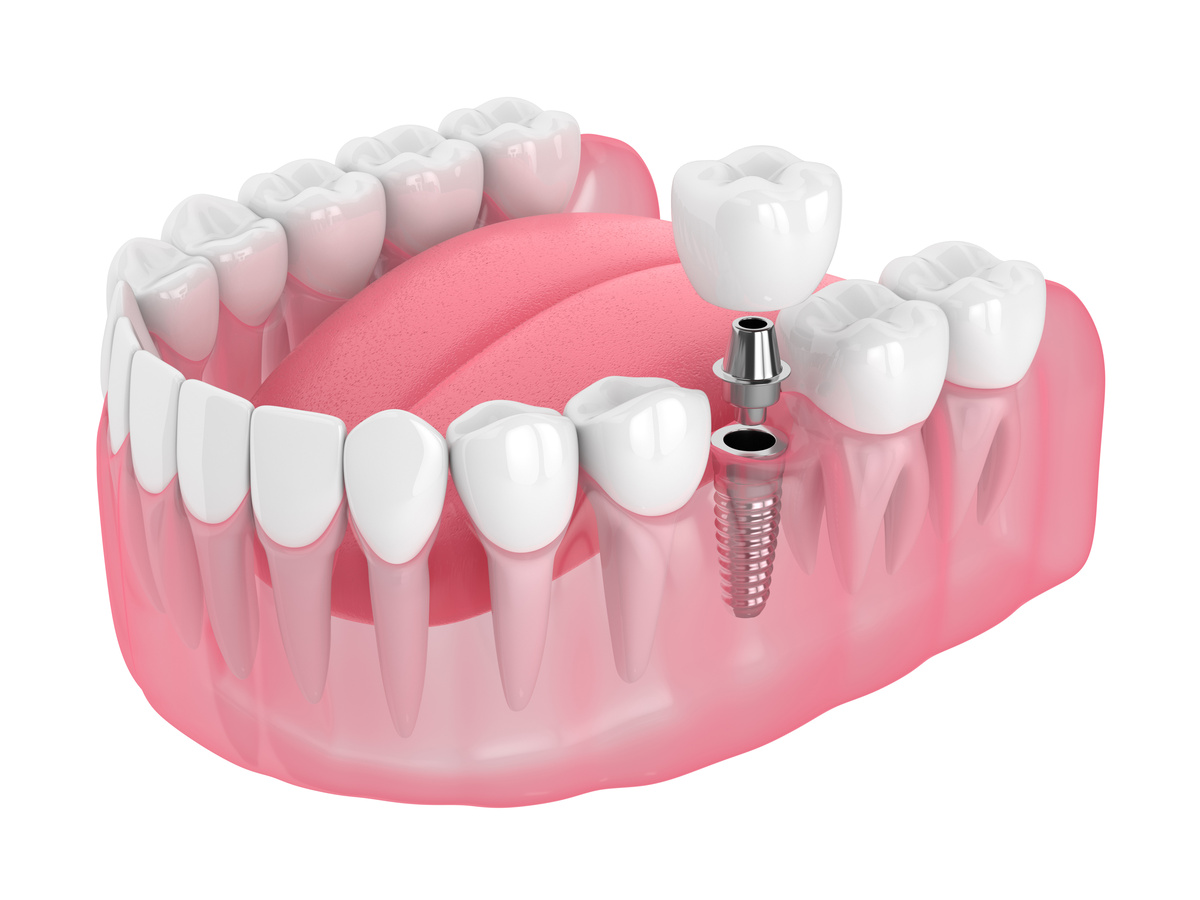If you’re considering dental implants, you’re probably wondering: how long do they really last? The short answer is — a long time. In fact, dental implants are one of the most durable and reliable tooth replacement options available today.
In this post, we’ll break down the typical lifespan of dental implants, what impacts their longevity, and how you can ensure yours last as long as possible.
How Long Do Dental Implants Last?
With proper care, dental implants can last 15–25 years or more. In many cases, they last a lifetime — especially the implant post itself, which fuses with the jawbone through a process called osseointegration.
However, the crown (the visible tooth on top of the implant) typically lasts 10–15 years, depending on wear, oral hygiene, and habits like grinding or chewing hard foods.
Parts of a Dental Implant and Their Lifespan
To understand the longevity of a dental implant, it helps to look at its three parts:
- Implant Post (Titanium Screw): Can last a lifetime with proper bone support and care.
- Abutment (Connector): May need replacement over time but is usually very durable.
- Crown (Tooth on Top): Lasts 10–15 years on average, but can be replaced without removing the implant post.
6 Factors That Affect How Long Dental Implants Last
1. Oral Hygiene Habits
Just like natural teeth, implants need regular brushing, flossing, and professional cleanings. Neglect can lead to peri-implantitis (a gum infection similar to periodontal disease), which can threaten the implant’s stability.
2. Lifestyle Choices
- Smoking significantly increases the risk of implant failure.
- Teeth grinding (bruxism) can wear down the crown or loosen the implant over time.
3. Overall Health
Certain conditions like diabetes or immune disorders can affect healing and increase the risk of implant failure. That doesn’t mean you can’t get implants — it just means careful planning is essential.
4. Jawbone Density
Dental implants rely on a strong jawbone for stability. If the bone isn’t healthy or thick enough, implants may not fuse properly. In some cases, bone grafting can be done to improve success rates.
5. Location of the Implant
Implants in the back of the mouth (molars) endure more chewing force and may wear out faster than implants in the front.
6. Quality of Materials & Placement
The expertise of your dentist and the quality of materials used matter. At Futch Dental in Reno, we use high-grade implant systems placed with precision for long-term success.
Can Dental Implants Fail?
While the success rate for implants is over 95%, failures can happen due to:
- Poor oral hygiene
- Smoking
- Infection around the implant
- Insufficient bone integration
- Improper bite or stress on the implant
Most of these risks are preventable with proper planning and aftercare.
Tips to Make Your Dental Implants Last
- Brush twice a day and floss daily
- Visit your dentist every 6 months
- Avoid smoking and limit alcohol use
- Wear a nightguard if you grind your teeth
- Avoid chewing on hard objects like ice or pens
Dental Implants in Reno, NV
At Futch Dental, we’re committed to helping you enjoy a long-lasting, healthy smile. Our dental implant treatments are customized for your needs, and we guide you every step of the way — from placement to long-term care.Ready to take the next step toward a confident, lasting smile? Contact us today to schedule a consultation.



